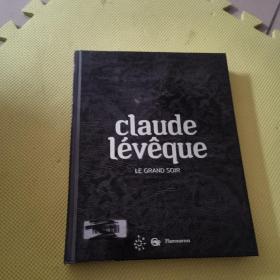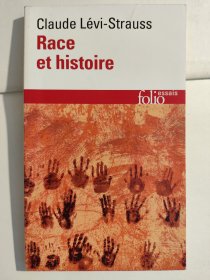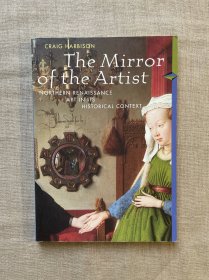
Claude Lévi-Strauss: The Poet in the Laboratory 列维-施特劳斯:实验室里的诗人 帕特里克·威肯【英文版,精装第一次印刷】Levi-Strauss
The Father of Modern Anthropology
¥ 138 九品
仅1件
作者Patrick Wilcken
出版社Penguin Press
ISBN9781594202735
出版时间2010
装帧精装
页数416页
上书时间2024-09-09
- 在售商品 暂无
- 平均发货时间 9小时
- 好评率 暂无
- 最新上架
商品详情
- 品相描述:九品
-
无写划,边缘少许积灰斑点。如有明显瑕疵,已尽可能反映在照片中,详情请仔细查看照片。
所有在售图书,出版社、出版年份、页数、装订形式等信息可能存在误差(部分条目直接套用孔夫子提供的书库信息,部分条目套用亚马逊等网站的图书数据),具体事实以照片展示为准。除照片明确展示以外,默认不含纸质图书以外的任何配件(包括但不限于光盘、网络资源等)。
- 商品描述
-
The definitive account of the life, work, and legacy of Claude Lévi-Strauss, father of modern anthropology and one of the postwar era's most influential thinkers.
When Claude Lévi-Strauss passed away last October at age 100, France celebrated the life and contributions of not only a preeminent anthropologist, but also one of the defining intellectuals of the twentieth century. Just as Freud had shaken up the antiquarian discipline of psychiatry, so had Lévi-Strauss revolutionized anthropology, transforming it from the colonial era study of "exotic" tribes to one consumed with fundamental questions about the nature of humanity and civilization itself.
Remarkably, there has never been a biography in English of the enigmatic Claude Lévi-Strauss. Drawing on a welter of original research and interviews with the anthropologist, Patrick Wilcken's Claude Lévi-Strauss fills this void. In rich detail, Wilcken re-creates Lévi-Strauss's peripatetic life: his groundbreaking fieldwork in some of the remotest reaches of the Amazon in the 1930s; his years as a Jew in Nazi- occupied France and as an émigré in wartime New York; and his return to Paris in the late 1940s, where he clashed with Jean-Paul Sartre and fundamentally influenced fellow postwar thinkers from Jacques Lacan to Michel Foucault and Roland Barthes. It was in France that structuralism, the school of thought he founded, first took hold, creating waves far beyond the field of anthropology. In his heyday, Lévi-Strauss was both a hero to contemporary intellectuals and an international celebrity.
In Claude Lévi-Strauss, Wilcken gives the reader a fascinating intellectual tour of the anthropologist's landmark works: Tristes Tropiques, a literary meditation on his travels and fieldwork; The Savage Mind, which showed that "primitive" people are driven by the same intellectual curiosities as their Western counterparts; and finally his monumental four-volume Mythologiques, a study of the universal structures of native mythology in the Americas. In the years that Lévi-Strauss published these pioneering works, Wilcken observes, tribal societies seemed to hold the answers to the most profound questions about the human mind. Following the great anthropologist from São Paulo to the Brazilian interior, and from New York to Paris, Patrick Wilcken's Claude Lévi- Strauss is both an evocative journey and an intellectual biography of one of the twentieth-century's most influential minds.
Patrick Wilcken is the author of Empire Adrift: The Portuguese Court in Rio de Janeiro, 1808-1821. He studied anthropology at Goldsmiths College, London University, and now works as a campaigner on the Brazil desk at Amnesty International.
Patrick Wilcken is the author of Empire Adrift: The Portuguese Court in Rio de Janeiro, 1808-1821. He studied anthropology at Goldsmiths College, London University, and now works as a campaigner on the Brazil desk at Amnesty International. He lives in London.
相关推荐
-

Claude Lévi-Strauss Tristes tropiques 平装 32开
八五品濮阳市
¥ 110.00
-

L'autre face de la lune:Claude Lévi-Strauss
九品大连
¥ 108.00
-

Claude Lévi-Strauss《Anthropology Confronts the Problems of the Modern World》
全新上海
¥ 350.00
-

法文 施特劳斯:身份 L'Identité.Claude Lévi-Strauss
九品北京
¥ 164.48
-

法文 施特劳斯:身份 L'Identité.Claude Lévi-Strauss
九品北京
¥ 230.00
-

Claude Lévêque
九品北京
¥ 300.00
-

现货 神话与内涵 英文原版 Myth and Meaning Claude Lévi-Strauss
九五品吉安
¥ 84.40
-

Race et histoire, Suivi de L’oeuvre de Claude Lévi-Strauss par Jean Pouillon
九品北京
¥ 70.00
-

L'entreprise Stratégique:Penser la straégie
九品石家庄
¥ 195.00
-

claude roy léone et les siens
八五品张家口
¥ 150.00
— 没有更多了 —






















以下为对购买帮助不大的评价